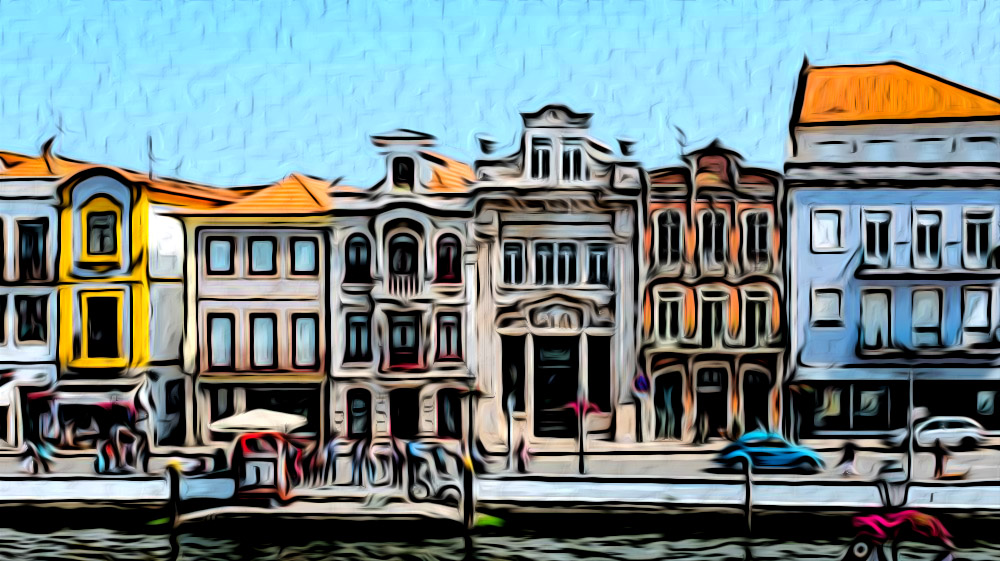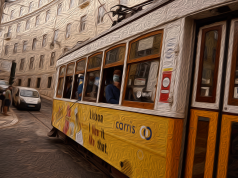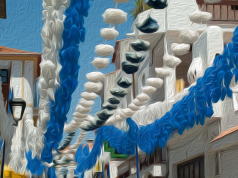Overview and History
Around 75% of the population owns real estate in Portugal. The rate is 10% higher than it is in the US and the UK. Foreigners are also highly interested in Portugal in terms of property investments. Moreover, according to the 2020 EY (Ernst & Young) Attractiveness Survey, Portugal admitted a total of 158 Foreign Direct Investments (FDI) in 2019. The top countries which made the most amount of investment are the USA, Germany, and France.
So, why do so many people prefer buying a property or making other investments in Portugal? There are a few answers to this question.
First, the country has proven to have restored its economy successfully after the financial crisis. It has a stable economy and has been on an upward trend since 2016. Tax rates are also favorable for non-residents. So, it creates a feasible environment for foreigners to invest in the country.
Secondly, property prices and mortgage rates are quite affordable, compared to other Western European countries. In fact, Deloitte’s Property Index of 2020 supports this argument. Portugal offered the best affordability rate for owned housing in 2019. The country also holds the lowest average mortgage rate in Europe. The average interest rate was only 1.06%.
Additionally, the country offers the Golden Visa program for individuals who buy real estate property in Portugal. Investors who purchase a property priced at €500,000 or more, qualify to apply for a Portuguese residence permit. If the property is located in an urban rehabilitation area or older than 30 years old, the price drops to €350,000, provided that the property is renovated. The program is a great incentive to buy a property in Portugal. The reason is that it offers residency in Portugal and visa-free travel in the Schengen area in Europe. In merely five years, there is a possibility of obtaining Portuguese citizenship and becoming an EU citizen, as well.
Why Purchase a Property in Portugal?
Portugal has beautiful geography. The coasts in the Algarve region are very well-known by expats. You can enjoy constant sunshine throughout the year. Both the city centers and the rural areas are developed enough to live in. Portugal is also a politically stable country. In fact, it is the 3rd safest country in the world, according to the 2020 Global Peace Index.
As stated above, if you buy a property and hold it for at least five years, you can be eligible for Portuguese citizenship as well. Once you are naturalized in Portugal, you are also an EU citizen with the right to work, travel, and study anywhere in the EU.
The Locations You Can Buy Property in
This section will help you decide where to buy a property in Portugal. It is important to note that each location has its own pros and cons, depending on the buyer’s criteria. The most popular destinations are, as follows:
Lisbon
Lisbon is Portugal’s capital. The city attracts expats and investors all year round. Lisbon is quite a vivid city, hosting a growing number of startups and tech companies. The real estate prices in most parts of Lisbon appreciated consistently since 2016, but are still lower than the average of European capitals. Especially in the neighborhoods of Avenida da Liberdade, Lapa, Baixa, and Chiado, the prices have increased due to demand from buyers.
You can also choose a more rural area such as Amadora or Benfica. These are further from the city center. Naturally, the prices are lower than they are in the center. Some very popular alternatives to Lisbon city center are Cascais and Estoril areas. In fact, lots of professionals choose to live in these areas. They are both more affordable, very scenic, and quite close to the city center. Cascais, in particular, attracts many foreigners, both European and non-EU nationals. The city of Cascais is very organized and well taken care of.
Porto
Porto is the second-largest city in Portugal. It is both a commercial and an industrial city. Similar to Lisbon, the World Business Angels Investment Forum elected Porto as the “Best Startup-Friendly City of Europe” in 2018. So, if you want to buy real estate in Portugal, Porto may surely be a good option. Alternatively, if you decide to invest in a venture capital fund of at least €350,000, you can apply for a Golden Visa in Portugal as well. This way, you can get a residence permit to live and work in Portugal, too.
Many tourists prefer Porto for vacation. It is also one of the oldest European centers. Apart from the locals, international businessmen and tourists add to the demand the city gets. Various property types are available in different parts of Porto. For instance, in Foz Douro, there are great beachfront properties that overlook the Atlantic. In the Ribeira region, you can find properties for more commercial purposes as well.
The Algarve
The Algarve, Portugal’s southernmost region, is famous for its Atlantic beaches and golf resorts. Charming fishing villages on low cliffs overlook beautiful coves, filled with hotels, bars, restaurants, and villas. The interior parts and the western Atlantic coast, on the other hand, are less developed.
Villas, beach houses, luxury houses, or apartments with ocean views, are some of the available real estate types in the Algarve region.
In the Vilamoura area, you can find beautiful villas and luxury homes. However, their prices are a bit on the higher end. This is also valid for Lagos and Albufeira areas. More rural areas like Alcoutim and Monchique provide cheaper options.
The Silver Coast
The Silver Coast is located between Lisbon and Porto. The mesmerizing region stretches from the Serra da Estrela mountains to the sandy beaches of the west coast. It includes Tomar and Coimbra; two historic cities.
There are great beachfront houses along the water. Furthermore, the prices are lower than in the Algarve region. You can consider the areas of Tomar, Peniche, Obidos, or Nazare to acquire a property in.
Property Prices in Portugal
The National Statistics Institute in Portugal (INE) declared the house prices in Portugal in the first quarter of 2020. It provides information in terms of square meters. It would be fair to state that the price per square meter in Lisbon ranges from €2,000, all the way up to €10,000. The prices are typically lower than these in every other city and region, including Cascais, the Algarve, Porto, etc.
Steps to Buying a Property in Portugal as a Foreigner?
Step 1: NIF Number
The first step is to obtain a Portuguese Tax Number (NIF). Any government finance office will provide you the NIF number. You need to indicate proof of address and bring your passport to obtain the NIF number.
The number is also necessary when you open a bank account. However, normally, you don’t need to open a bank account to purchase a property. It can nevertheless be useful when you transfer money and make regular payments during the purchase process.
Step 2: Taking out a Mortgage
When you decide on which house to buy, you can take out a mortgage from a bank in Portugal. You can contact banks such as Santander, Novo Banco, BBVA, among others, in order to get a quote for a mortgage. Non-residents can have a maximum of a 25-year mortgage, and residents can have up to a 30-year mortgage. As a non-resident, you are typically expected to pay around a 30% deposit. Residents, on the other hand, need to make a 20% down payment.
There are two types of mortgages, namely the fixed-rate mortgage and the variable-rate mortgage.
Fixed-Rate Mortgage
For a certain period, you pay a fixed amount of interest rate. The duration can range between one and 30 years. Naturally, you will not be affected by the fluctuations in the European base rate.
Variable-Rate Mortgage
The variable rate starts from 3.3% a year, as long as the loan-to-value ratio is 30%. Also, if the loan-to-value ratio is up to 70%, then the variable-rate is 4.1% up to five years.
However, for both mortgage types, there is a rule. If you decide on early repayment, you will pay an early-payment penalty.
To be qualified for a mortgage, two things are important. The banks will assess your financial standing and make a property evaluation. For your financial standing, they need proof of income such as salary or rental incomes, incomes from investments, and so on. For the property evaluation, the banks will typically hire an engineer to evaluate it. Generally, Portuguese banks lend between 60-80% of the property value.
Necessary Documents for Mortgages
- Passport copy
- Portuguese tax number (NIF)
- Proof of income
- Personal bank statements of the last three months (including the incoming and outgoing capital)
- Proof of address (i.e., recent utility bill)
- Recent mortgage statement
- Proof of savings or investment accounts
- Bank reference letter
- Details of property: Purchase commitment or property sales contract
As the borrower, you are required to get life insurance in order to get a mortgage or a loan.
Step 3: Down Payment
If and once you choose to take out a mortgage, you can then negotiate the price with the seller. When you mutually agree on the price, you must make a down payment. The price for a reservation fee, a down payment if you will. The seller and the buyer collaboratively decide upon the down payment amount, though it is typically around 5%-10% of the property purchase price.
Step 4: Signing the CPCV (Contrato de Promessa de Compra e Venda)
Both parties sign a preliminary contract called Contrato de Promessa de Compra e Venda. It means a Promissory Sales Contract. With this, both parties are secured on the terms and are ready to proceed.
Step 5: Signing the Deed of Purchase and Sale
Finally, you sign and notarize the Deed of Purchase and Sale (Escritura Publica de Compra e Venda). The property is then registered under your name.
Taxes and Fees
There are a few fees and taxes you need to pay while buying a property in Portugal:
- IMT (Imposto Municipal Sobre Transmissões): It is the Municipal Property Transfer Tax and it is applied on transfers of properties in Portugal. It is calculated based on information presented in the tax declaration, and it ranges between 2%-8% depending on the location and the type of the property
- Stamp duty (Imposto do Selo): It is a fixed rate of 0.8% of the purchase price
- Notary and land registry fees: Up to € 600
- Legal Due Diligence Fees: Depends on your Law Firm
- Portuguese Mortgage Fees: Such as valuation fees, assessment fees, and registration fees.
How To Find a Property in Portugal
You can consult property agencies and agents (imobiliaria). Also, there are several online portals bringing sellers together with buyers.
If you apply for estate agents, you should know that they get compensated by sellers. The fees for estate agents are mostly between 3% and 5% of the property price. This will be covered by the seller and will be shared between the sell-side broker and the buy-side broker.
Other Important Issues
It is important to make sure that you chose a registered realtor. All of the agents must be registered with the “Associacao de Mediadores Imobiliarios” (Association of Real Estate Agents). They must hold a license number. You can check yours by contacting the “Instituto da Construção e do Imobiliario” (Institute of Construction and Real Estate).
Before you review the sales contract, you should find a lawyer or a solicitor to be on the safe side. As to finding your own independent solicitor, you should perform a careful research. “Solicitador” and “advogado” are two different titles in Portugal. Solicitador is a conveying specialist. An “advogado” is a qualified lawyer. Mostly, it is better to consult an advogado when you arrange the purchase.
Frequently Asked Questions
Can Foreigners Buy Property in Portugal?
Foreigners can definitely buy properties in Portugal. Furthermore, the Portugal Golden Visa program already encourages potential buyers to invest in the country. If you buy a house for at least €500,000, you obtain temporary residency in Portugal.
Another option for real estate purchase is to buy a property of at least €350,000. In that case, the property must be older than 30 years, and you must renovate the property as well.
Along with residency, you will have a right to visa-free travel to the Schengen countries if you obtain a Portugal Golden Visa.
Is It The Right Time to Buy a Property in Portugal?
It would be bold to suggest an exact period to buy property in Portugal. However, it would be better to start the process if you want to buy a property. The reason is that property prices are rising fast. There is now more demand by the investors and buyers than the supply of property.
So, if you plan to live in Portugal in the long term, it may be suitable to purchase now and wait for permanent residency and citizenship. Even if you don’t want to stay in Portugal, you can enjoy the increase in the prices when you decide to sell the property.
What Are The Cheaper Areas to Buy Property in Portugal?
The Silver Coast may be a good option. It can also be a good alternative to the Algarve, with its great coastlines. You can find houses or apartments for less than €100,000. Other places you can consider may be Obidos, Peniche, Nazare, and Tomar.
You can also find cheaper properties in some parts of the Algarve. For example, Monchique and Alcoutim. You can also consider more rural areas as well. In Lisbon, you can consider Oeiras as a cheaper area considering the overall high prices in Lisbon.
What Are The More Expensive Areas for The Purchase of Property in Portugal?
In Lisbon, Avenida da Liberdade, Baixa Chiado, and Lapa are the most expensive areas. For cheaper ones, you may consider Benfica and Amadora. In Cascais and Estoril, prices are still rising, but they are not as high as Baixa Chiado, for example.
Should I Rent or Purchase a Property in Portugal?
It will depend on your purpose of using the property. However, if you buy a house and rent it in the holiday season, you can earn significant profits. Renting, on the other hand, provides you the freedom to explore other suitable areas to buy in the future. You should also consider that house prices are relatively cheaper in Portugal than in other European countries. Considering the increasing prices, it may be a good option to purchase earlier and enjoy your investment later when the prices increase enough to sell your property.
Is Buying a Property in Portugal Cheap?
It depends on where you want to buy. Buying property in areas like Lisbon is more expensive than in other cities. However, places which are a bit more distant from city centers are always cheaper.
What Should I Do to Buy Property in Portugal?
If you want to buy property in Portugal, you should first get a NIF number. Then select the real estate you want to buy. You can take out a mortgage, if necessary. As the last step, you sign related documents and contracts before the notary.
How Is The Property Market in Portugal?
More and more buyers and investors are interested in buying a property in Portugal. The demand now exceeds the supply. This is why the amounts of the purchase price are increasing day by day.
Is Buying a Property Necessary For Getting a Portugal Golden Visa?
If you want to obtain a Portugal Golden Visa, you can buy real estate at an amount of at least €500.0000. There are other investment options, as well. However, buying real estate is the most common investment type in Portugal.
Read the Guide on Europe’s Most Popular Residency Program Portugal Golden Visa






